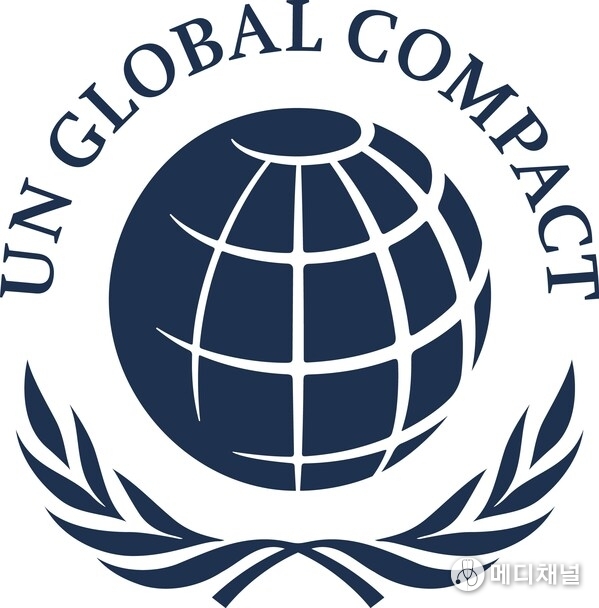
Senior executives of business and finance, civil society, the United Nations and Government met on the margins of the United Nations Climate Change Conference (COP30) to identify key steps to accelerate stronger public-private collaboration for 1.5°C-aligned solutions and resilient development.
BELÉM, Brazil, Nov. 13, 2025 -- The United Nations Global Compact, together with the UN Environment Programme (UNEP) and the UN Framework Convention on Climate Change (UNFCCC), today convened the 13th Annual High-Level Meeting of Caring for Climate.
The meeting brought together CEOs, Government leaders, investors and representatives from civil society and the UN to explore how business and Government can work together to demonstrate progress and deliver greater ambition of newly submitted Nationally Determined Contributions (NDCs) to transform the energy system, accelerating a just transition away from fossil fuels, and aligning all sectors of the economy with the 1.5°C goal.
At a moment when climate impacts are intensifying and costs of inaction are rising — from food insecurity to insurance losses — the forum reaffirmed 1.5˚C as the non-negotiable benchmark and highlighted the urgent need for a quantum leap in ambition and implementation. Participants showcased practical solutions demonstrating that bold climate action is not a cost, but the only viable pathway to long-term profitability, resilience and shared prosperity.
The discussion focused on the policy and finance mechanisms required to unlock private investment in national transitions, de-risk capital flows and build credible pipelines of bankable projects — particularly in emerging and developing economies.
Sanda Ojiambo, CEO and Executive Director of the UN Global Compact, said: "The Caring for Climate initiative reminds us that reaching global net zero by 2050 — and moving swiftly to sustained net-negative emissions afterward — is the foundation for a resilient and robust global economy. Business has both the responsibility and the opportunity to drive this transformation. Done right, this is an economic growth strategy: it can unlock trillions in private investment, lower energy and input costs, spur innovation across value chains, and create good jobs in every region. But governments must create the enabling policy environments and incentives that allow ambition to translate into immediate and deep emissions reductions. At COP30, we need stronger alignment between public and private transition plans to bring temperatures back below 1.5°C and safeguard the future the world needs."
Ojiambo noted that the UN Global Compact came to COP30 to: advance an inclusive, 1.5°C-aligned energy transition — scaling renewables and strengthening energy infrastructure to improve clean energy access for all; make adaptation a core business and finance priority so that it is viewed as an imperative in protecting people, assets and supply chains; and mobilize finance for a just and credible transition to meet global energy targets and needs, while prioritizing building resilience.
In his opening remarks, Selwin Hart, Special Adviser to the Secretary-General and Assistant Secretary-General on Climate Action, United Nations, said: "The private sector has a decisive role to play in supporting countries to over-deliver on their new Nationally Determined Contributions and keep the 1.5°C limit within reach. These new national climate plans must be the floor of ambition, not the ceiling. The economic case for climate action is unambiguous. With credible net zero transition plans in place, private sector and subnational actors can deliver real and rapid emissions cuts across entire value chains, shift finance from fossil fuels towards renewables, and build resilience to climate shocks, while boosting growth and competitiveness. Net zero must be real, not rhetorical."
Noura Hamladji, Deputy Executive Secretary, UN Climate Change, in her closing remarks, stated: "This new era of implementation is about bringing our process closer to the real economy — and ensuring that the benefits of climate action are felt by billions more people through growth, jobs, health, and security."
The meeting built on the momentum of the UN Secretary-General's call for NDCs 3.0 to double energy efficiency, triple renewable capacity, and accelerate a just and funded transition.
According to the 2025 UN Global Compact–Accenture CEO Study, 88% of CEOs say the business case for sustainability is stronger today than five years ago, and 99% plan to maintain or expand their companies' climate, environmental and social commitments.
These findings underline the private sector's readiness to lead — provided that governments deliver the regulatory clarity, financial instruments and partnership frameworks needed to scale solutions across industries and regions.
Launched in 2007, Caring for Climate provides a platform for dialogue between CEOs, civil society, United Nations and policymakers at the UN Climate Change Conference to accelerate progress toward the Paris Agreement goals.
Notes to Editors
About the UN Global Compact
The ambition of the UN Global Compact is to accelerate and scale the global collective impact of business by upholding the Ten Principles and delivering the SDGs through accountable companies and ecosystems that enable change. With more than 20,000 participating companies, 5 Regional Hubs, 66 Country Networks covering 85 countries and 9 Country Managers establishing Networks in 16 other countries, the UN Global Compact is the world's largest corporate sustainability initiative — one Global Compact uniting business for a better world. For more information, follow @globalcompact on social media and visit our website at unglobalcompact.org.
CONTACT: Alexandra Gee, gee@unglobalcompact.org

